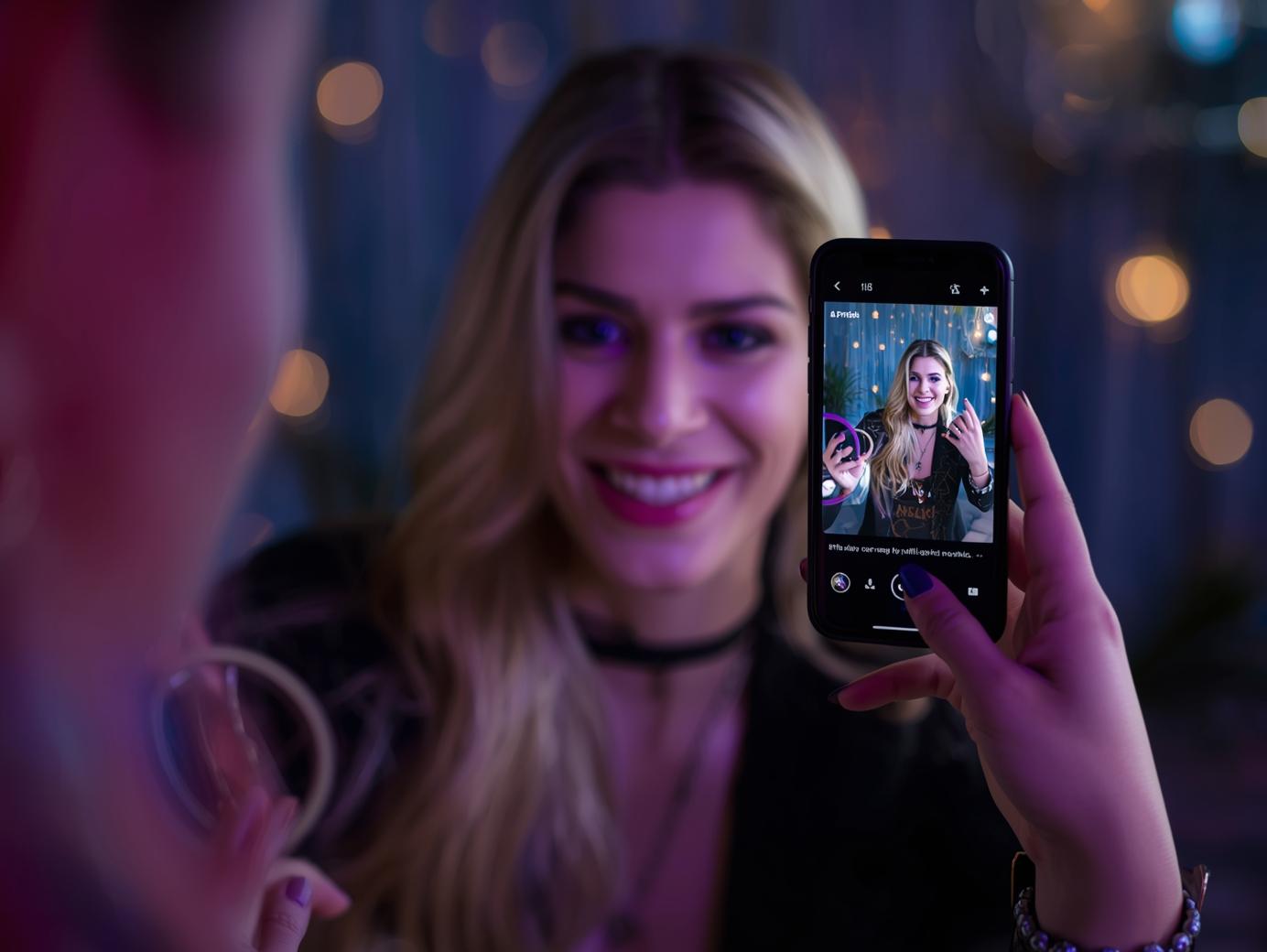The TikTok Awakening
TikTok has always been a playground for trends that blur the line between self-discovery and entertainment. There are few that have struck a more profound emotional chord than angel numbers. Take a minute to scroll through your feed, and you will find countless creators posting about repeating numbers like 11:11, 333, or 555, with each promising a secret message from the universe. These reels tend to start with “If you are seeing this,” and then finish with “It is meant for you.” The views climb into the millions. The comment sections are always filled with “This was my sign” and “I just saw this number today.”
This is more than another social media fad. It is a reflection of something so much bigger. The angel number trend reveals a generation’s hunger for meaning in a time when traditional belief systems are being replaced by algorithmic spirituality. The language of numbers is bridging intuition and technology. This ultimately offers people comfort, validation, and the illusion, maybe the evidence, that destiny is right on schedule.
The phenomenon is not random. TikTok’s algorithm rewards emotional resonance, pushing videos that make users feel personally spoken to. Angel number content thrives because it taps into this digital empathy loop. When someone comments, “This is what I needed to hear,” the algorithm amplifies it even further. This turns one moment of spiritual connection into a collective experience. While most internet trends feel short-lived, this one feels sacred.
What are Angel Numbers?
Angel numbers come from a mixture of numerology, mysticism, and modern self-help. In numerology, each number carries a specific vibrational energy. The 1 symbolizes new beginnings, 2 represents balance, three relates to creativity, and so on. When these numbers are repeated, their meanings intensify.
Historically, this concept traces all the way back to Pythagoras, who believed that numbers served as the building blocks of the universe. The more modern idea of angel numbers gained traction in the 1990s through spiritual authors like Doreen Virtue, who suggested that repeating numbers are messages from the angels that guide us toward alignment with our higher purpose.
The idea resonated because it was practical and mystical. Numbers are everywhere: receipts, clocks, phone screens, and license plates. They seem to follow us. Seeing patterns in these things creates the sense that life is not random, that it is more of a conversation. According to HowStuffWorks, the human brain is naturally wired to notice patterns and assign meaning, especially when emotions are involved (HowStuffWorks).
This is why the concept translates so easily to TikTok. The app thrives on patterns. The algorithm is basically numerology with a code. Angel numbers are the perfect metaphor for a digital generation that experiences life through metrics and synchronicities co-occurring.
The Psychology Behind the Obsession

Angel numbers appeal because they seemingly turn uncertainty into purpose. Psychologically, the brain experiences a minor dopamine release when it finds a meaningful pattern. It is the same mechanism behind why people crave story arcs or love puzzles. The brain does not like chaos because it truly wants to believe events are connected.
Psychology Today explains this as an emotional contagion. This is the process by which feelings spread rapidly across social networks, both online and off (Psychology Today). When one TikTok user posts a video sharing that they have been seeing 222, and now everything seems to be falling into place, others start noticing the same number around them. The meaning spreads and reshapes perception itself.
Angel numbers also satisfy what psychologists call “the need for narrative closure.” When life feels uncertain, seeing repeated numbers like 111 or 555 offers a micro-moment of clarity. It feels as if something bigger is in control. It does not matter whether the explanation is spiritual or psychological. What really matters is the calm it can bring to people.
The irony is that skeptics and believers tend to be motivated by the same thing. This is the desire to understand life. The skeptic looks for proof while the believer looks for purpose. Angel numbers provide a pattern to analyze and a story to believe in.
The Spiritual Side of Things
Speaking from a spiritual perspective, angel numbers are said to be the universe’s shorthand for reassurance. They are a reminder that you are supported, guided, and seen. When you are struggling and see 444 on a clock, it is like the universe sending a cosmic text saying, “Hang in there, you are protected.”
TikTok has given rise to a whole new class of creators, almost modern mystics of sorts, who interpret these numbers for millions of viewers. Creators like @AstroAlyssa and @TheHealingMuse record short, emotionally charged videos where they decode the meaning of repeating numbers for very specific life situations. These snippets then serve as digital divination that gives viewers instant access to spiritual insight that once required a scheduled, private session with a psychic.
Skeptics may roll their eyes, but the impact is very real. Viewers report feeling calmer, hopeful, and intentional. The numbers seemingly become a daily affirmation. As one user commented under a viral 11:11 video, “Every time I see this, something positive happens. It reminds me to keep going.” To believers, this is confirmation, not coincidence.
TikTok as a Digital Oracle
TikTok functions like a new kind of oracle powered by code instead of cards. Its algorithm curates videos based on emotional resonance. This effectively serves each user what they are craving on a subconscious level. This gives rise to what many have dubbed algorithmic synchronicity. You think about a new job, open the app, and a video about angel number 555 (symbolizing change) appears. This may be a coincidence, but it feels highly mystical.
Creators like @NumerologyNina and @ManifestWithMeg have turned this phenomenon into a digital ritual. Their content seamlessly blends traditional numerology with self-improvement advice: “Seeing 333? Your creativity is awakening.” “Noticing 888? Financial abundance is aligning.” The result is both soothing and empowering.
The platform’s 60-second storytelling format creates brevity that forces creators to distill complex spiritual ideas into emotional poetry. Every video becomes a mantra, so TikTok becomes much more than entertainment. It is therapy disguised as magic.
The Online Rise of Collective Spirituality
Angel numbers represent a bigger shift to spirituality becoming communal once again, but this time in digital form. Gen Z and Millennials, two generations highly disillusioned with traditional institutions, are creating their own belief systems on social media. Instead of priests, they have content creators and hashtags replace scripture.
The hashtag #AngelNumbers now exceeds a billion views. In the comments, strangers encourage one another with phrases like “Trust the process” and “Your angels have you.” It is all part of religion, part rebellion. This form of spirituality provides peace without pressure for young people facing climate anxiety, economic instability, and chaotic political systems.
Sociologists describe it as “networked faith,” which is a belief shaped collectively through digital interaction. It is not about doctrine but a shared emotional experience. Everyone participates and belongs, and all are invited to look for signs.
The New Mainstream Mysticism
Not that long ago, topics like numerology and angelic communication were considered fringe. Now, even skeptics are sharing “11:11 make-a-wish” memes. Pop culture has normalized the language of signs and synchronicity. Even celebrities like Taylor Swift, who is famous for her use of numbers, have helped make numerology chic. Her fans decode her release dates and lyrics as if they were modern-day diviners.
This crossover between spirituality and pop culture makes belief feel more accessible. There is no need to be deeply mystical to participate; you must simply notice. That is why angel numbers are so irresistible. They are inclusive and are not concerned with what religion you may follow or whether you believe in angels at all. You simply have to pay attention.
Even skeptics and comedians contribute to the trend by joking about it, saying things like, “The universe keeps sending me 000 because I am broke.” Humor opens the gateway to curiosity. In an exhausted world tired of extremes, blind faith versus total cynicism, angel numbers offer a middle path of playful belief.
The Psychic Perspectives
Psychic readers and numerologists see angel numbers as a reflection of energy shifts, both personal and global in nature. For example, 111 represents alignment with manifestation, 222 speaks of balance and relationships, and 555 signals transformation. Professional intuitives go deeper as they interpret the emotional undertones behind each of these numbers.
Numerologist and psychic coach Luna Rhys says, “Numbers speak in frequency, not words. You are being invited into awareness when you see a repeating number.” She teaches clients how to track their patterns by asking what they were thinking or feeling before noticing the number or what decision was being avoided. The number is then a mirror, not a prophecy.
Even mainstream sources recognize the phenomenon’s psychological impact. Africa Check labels numerology as pseudoscience, yet concedes that it provides comfort and a sense of control during uncertainty (Africa Check). After all, comfort is one of the most powerful currencies of belief. For psychics, angel numbers are a language of intuition, a way for unseen energies to communicate in this digital environment.
The Emotional Economy of Hope
The angel number trend, at the heart of things, is about hope economics. Each time someone sees a repeating number and feels even a little uplifted, they experience a micro-dose of optimism. That feeling keeps them returning to TikTok for content and confirmation that they are indeed on the right path.
When creators post messages like “Seeing 888? Abundance is on the way,” thousands will comment, “Claiming this energy.” These are not just mindless affirmations, but small acts of faith performed publicly. This collective form of optimism transforms the app into a digital cathedral where the members pray in emojis and hashtags.
This form of emotional economy benefits everyone. From the creators that gain engagement to viewers getting comfort, and the algorithm rewards positivity. It is not manipulation but manifestation through metrics. The currency is attention, but the real exchange is energy.
Critics, Skeptics, and the Science of Belief
Critics argue that angel numbers are a coincidence wrapped in confirmation bias. Psychologists note that once people assign meaning to a number, they start to notice it. This is a phenomenon known as selective attention. The same thing happens when you start thinking about a new product or color of vehicle, and suddenly, that is all you notice. The science is valid, but does not cancel out the actual experience.
The truth is, belief has always existed on the edge of science. arXiv published research showing how an emotional contagion and related social reinforcement amplify specific ideas across digital platforms (arXiv). That’s precisely what is happening with angel numbers. The more people believe, the more proof appears in their feeds.
Believers counter that skeptics misunderstand the whole purpose. Angel numbers are not about predicting the future. They are about noticing the present. They encourage awareness, gratitude, and faith in the timing of the universe. Whether or not angels are involved, the act of finding meaning itself is healing.
How TikTok Turned Angel Numbers into a Movement
TikTok’s genius lies in the intimacy it creates. The phrase “If you are seeing this, it is for you” personalizes any message almost instantly. Even if it is just a pure coincidence, it feels somehow fated. That emotional immediacy has turned angel numbers into one of the platform’s most enduring spiritual movements.
Creators combine gentle music with some visual cues and slow zoom-ins to simulate the feeling of divine presence. The results are mesmerizing. These microexperiences of wonder are able to satisfy the heart and mind. They are visually pleasing and emotionally grounding. As millions share, remix, and duet these videos, TikTok becomes a participatory oracle. Spirituality is no longer a solitary act. It is now a social one.
The Future of Digital Spirituality
As the digital landscape evolves, angel numbers may be the first step toward a broader spiritual renaissance online. We are entering an age where algorithms no longer just entertain, they mirror the collective consciousness. AI apps already offer personalized numerology readings, angel message generators, and birth chart analysis. Psychic creators are collaborating with tech developers to create digital divination tools that mix intuition with analytics.
Still, the most transformative part of this trend is not the technology; it is the trust. The idea that the universe might still be whispering to us in some way, in code or through coincidence. It is the union of belief with bandwidth, a cosmic conversation in pixels.
Why the Universe Speaks in Numbers
Angel numbers are so much more than a TikTok trend. They are a true reflection of humanity’s eternal desire to feel guided. Whether you believe they are messages from angels, signs from your higher self, or some beautiful coincidence, the meaning is found in the comfort that is felt.
We live in a data-obsessed world that is desperate for some divine reassurance. Angel numbers bridge the gap as they remind us that spirituality can coexist with science. The universe can communicate, even through a screen. Maybe that is why people cannot stop watching, sharing, and believing. In every 111 or 222 sequence, there is a reminder that we are part of something larger, more intelligent, and connected. The numbers may be repeating, but the message is always new.
You are exactly where you need to be.
FAQ:
1. What are angel numbers in the context of TikTok?
They are repeating or patterned number sequences (like 111, 222, 1234) that creators interpret as timely cues or encouragement. On TikTok, quick reels pair a short meaning with a relatable life moment, which fuels sharing.
2. Why did angel numbers become so popular on TikTok?
Short videos, on-screen text, and sound trends make bite-sized symbolism easy to remember and share. The content sits at the intersection of reassurance, identity expression, and community—perfect for virality.
3. Do angel numbers have fixed meanings?
No. There are common themes—111 for initiating, 222 for balance, 333 for support—but interpretations vary by tradition and creator. Personal context and intention matter more than any single definition.
4. What do the most-shared numbers typically mean?
111 new starts and focus, 222 relationships and harmony, 333 guidance or teamwork, 444 stability and discipline, 555 change and momentum, 777 intuition and study, 888 abundance and exchange, 999 closure and release.
5. How do algorithms amplify angel-number content?
Videos with fast hooks, saves, and friend tags get surfaced more. Angel-number clips invite quick self-application (“this is so me”), driving comments and replays that algorithms reward.
6. Are angel numbers just confirmation bias?
They can be—our brains notice patterns we’re primed to see. Many users treat numbers as reflective prompts rather than literal predictions, using them to check in with goals, boundaries, or timing.
7. Can I use angel numbers practically without superstition?
Yes. Assign numbers micro-actions: 111 write one intention, 222 message a collaborator, 444 tidy your workspace for 4 minutes, 555 try a small experiment. Turn noticing into positive behavior.
8. How should creators present angel-number meanings ethically?
Offer them as invitations, not guarantees; avoid medical/legal claims; encourage personal discernment; provide opt-outs; and remind viewers to seek qualified help for serious issues.
9. What’s a respectful way to engage if I’m skeptical?
Use numbers as mindfulness cues, journaling prompts, or habit triggers. You can appreciate the ritual’s structure without adopting a belief framework.
10. How do I start learning the symbolism beyond TikTok trends?
Keep a private log: date, number, mood, situation, action taken, outcome. Patterns you discover over weeks tend to be more meaningful than one-off posts.
11. Are there cultural roots behind number symbolism?
Yes. Numerological systems appear across cultures and eras. TikTok blends these older ideas with modern self-help language, creating shareable, personal interpretations.
12. What’s a simple framework for interpreting any sequence?
Pause and notice → recall a core theme (initiate, balance, support, stability, change, intuition, exchange, closure) → choose one grounded action that fits your current context.






